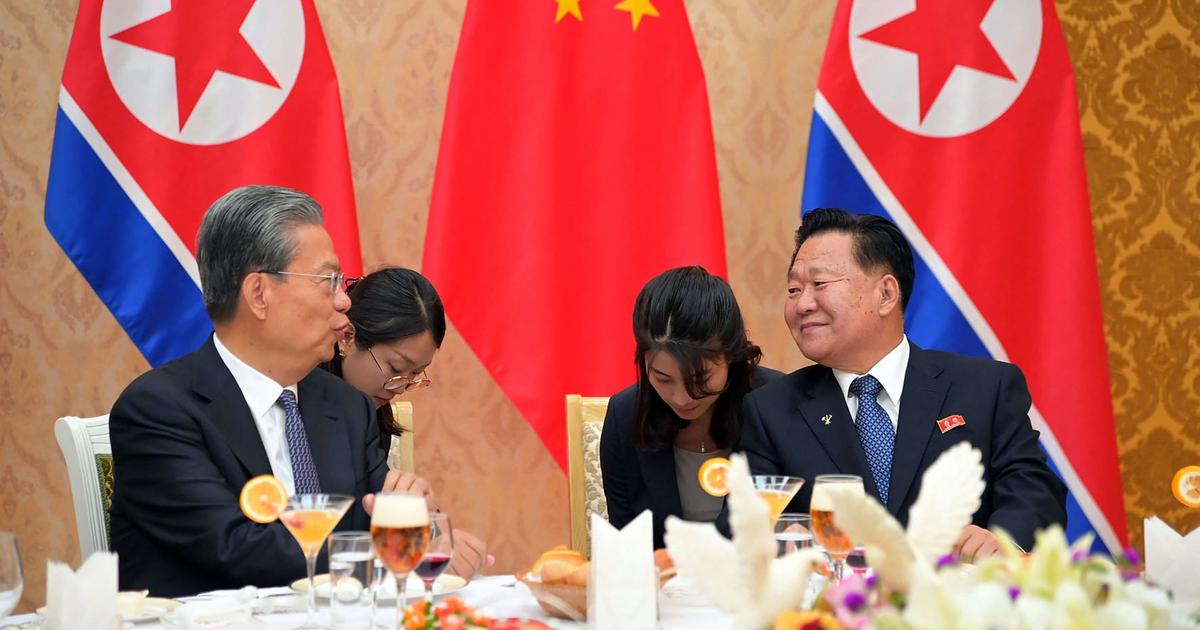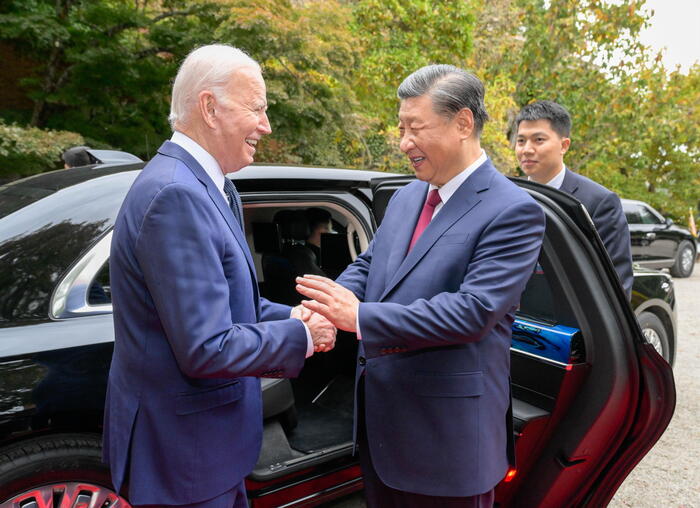They are predominantly members of the Muslim minority of the Uighurs. Almost a million of them are being held in detention centers in western China, suspects detained without trial, children separated from their parents.
For years, China's leadership has denied the extent of the persecution, and for many years has been making it difficult for independent observers to enter the Xinjiang Autonomous Region. The "New York Times" has now been leaked a series of documents that refute the placements of Chinese diplomats and confirm the worst fears of human rights activists.
The material, according to the newspaper, comes "from a member of the political establishment" and covers 403 pages. In addition to concrete instructions for Xinjiang officials, it contains internal investigative reports and speeches by high-ranking party officials, including transcripts of four hitherto unknown speeches by head of state Xi Jinping.
A worldwide unique system of mass surveillance
The Xinjiang Autonomous Region, which is about four times the size of Germany and bordered by, among others, Pakistan, Afghanistan and Tajikistan, was always ruled by Beijing with a heavy hand. After a series of serious attacks between 2009 and 2014 attributed to militant Islamists, the government tightened the security regime. It built hundreds of internment camps in 2016 and built a worldwide unique mass surveillance system.
As evidenced by the documents published by The New York Times, this policy goes straight back to Head of State Xi Jinping. In several speeches in 2014, he called for "the fight against terrorism, infiltration and separatism", a "people's war" in which "absolutely no mercy" was to be shown. So far, only allusions to these speeches and barely verbatim citations have been published.
Pavel Golovkin / AFP
China's head of state Xi Jinping
The passages that have now become known first explain the geopolitical and security policy motives of China's leadership: "After the United States has withdrawn troops from Afghanistan, terrorist organizations from the border regions of Afghanistan and Pakistan could infiltrate Central Asia," said Xi. "Terrorists who have gained war experience in Syria and Afghanistan could perpetrate attacks in Xinjiang at any time."
A "period of painful interventional treatment"
While his predecessors, in addition to repressive means, also focused on the economic development of the region, Xi apparently challenged this strategy from the very beginning: Although the standard of living in Xinjiang had increased, "ethnic separatism" and "terrorist violence" had increased at the same time shows that economic development does not automatically lead to lasting order and security. "
That's why Xinjiang's population has a "period of painful, interventional treatment." Several times, Xi describes religious extremism in clinical terms, even comparing it to an addiction: "As soon as you believe in it, it's like taking a drug," the New York Times quotes from a speech Xi delivered to leading party leaders : "You lose your senses, you go crazy and you're ready to do anything."
This language can be found almost literally in texts that give the city of Turpan officials, for example, to answer questions from children whose parents are in the camp. Their fathers and mothers are said to be comparable to people suffering from "malignant tumors" and "contagious viruses". Those who are not thoroughly "cured" could "infect the whole family". This also applies to old people and farmers, even if so many family members are locked up that there is no one left to order the fields.
While Chinese politicians and diplomats repeatedly describe the mass extrajudicial arrests as a harmless "Vocational Training Campaign", the documents now published clearly state that they are punitive. In a directive issued by the city of Turpan, words such as "punishment" and "punishment" appear eight times.
A presumably enforced confession
All layers and branches of administration - city, village, school and police - are instructed to identify and contact suspects immediately. Particularly suspicious students are classified as coming home on vacation, often finding out there that family members are interned. "Report immediately: from other parts of China homecoming students," it says about in the directive. Students often have "extensive social contacts". As soon as they published "incorrect opinions" on social media, "the effect is widespread and difficult to eradicate".
The biggest surprise of the material published by The New York Times included two reports of a cadre named Wang Yongzhi defying the party. Initially, as ordered, he had more than 20,000 Uyghurs interned in his district, but soon his supervisor's demands seemed "too ambitious and unrealistic." Worried that his district could fall back economically, he dismissed 7,000 of those arrested again.
For this arbitrariness, the party relieved him of his duties, punished and had him write a self-incrimination, after which he had drunk too much and broken rules: "I have acted selectively and made my own adjustments, because I was convinced that the arrest of so many People knowingly create conflict and deepen bitterness, "he wrote in his presumably forced confession. In the party's investigation report, it simply states, "He refused to arrest anyone who should be arrested."









/cloudfront-eu-central-1.images.arcpublishing.com/prisa/CIWYA32EL2HWMI7DWEZGSK5F2U.jpg)